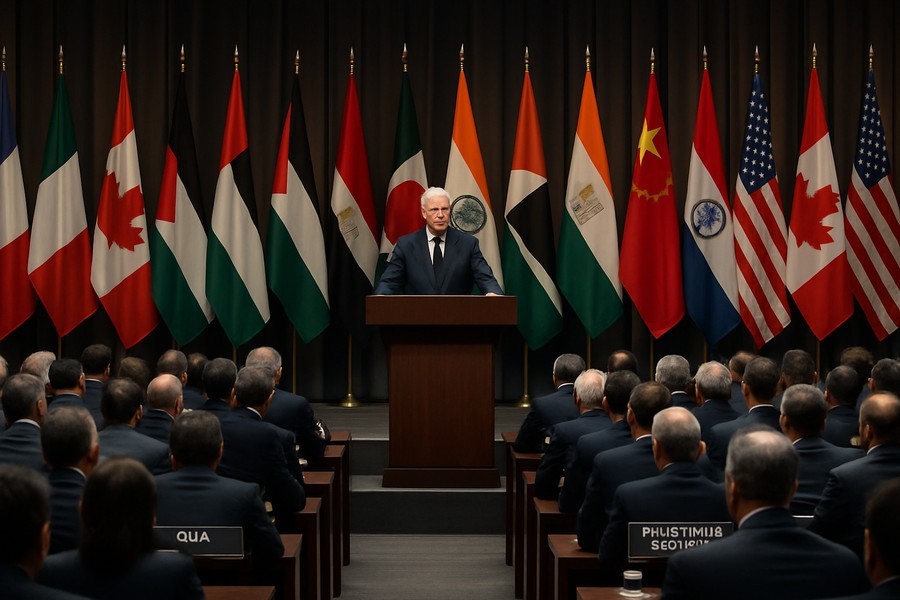
Global Leaders Gather to Discuss the Future of Palestine and Gaza
This week, the world's top leaders are gathering for a major international event. Among them is the President, who is expected to make a significant address in his second term. The focus of many attendants' attentions will be on the President, especially since his drastic reduction in foreign aid following his return to office.
As global humanitarian crises swell, the President's decision to slash support for international aid organizations continues to draw criticism. His presence at the 80th session of this high-profile international gathering has coincided with growing concerns over the war and famine in Gaza, and the push for the recognition of Palestinian statehood.
International Recognition of Palestinian Statehood
A group of prominent world leaders, including some of America's closest allies, are preparing to officially recognize Palestinian statehood. This move comes in reaction to the escalating war and humanitarian crisis in Gaza. To this end, France and Saudi Arabia will spearhead a peace conference in New York, supporting the two-state solution. Several countries, including France, are expected to formally recognize Palestinian statehood, joining over 140 countries that have already done so.
Leaders from the United Kingdom, France, and Canada have expressed their desire for an end to the Gaza war. They've called for the immediate release of all hostages and expressed their belief that Hamas should no longer hold authority in Gaza post-war.
France has announced that ten countries will formally recognize Palestinian statehood at the meeting. However, the United States will not be participating in the conference and was one of only a handful of countries that voted against the resolution supporting the gathering.
Israel's Response to the Recognition
Israel has pledged to retaliate against the formal recognition, possibly by annexing parts of the West Bank. Israeli Prime Minister has categorically rejected the international conference, stating that those leaders who recognize a Palestinian state are rewarding terrorism. He also adamantly declared that a Palestinian state will not be established west of the Jordan River.
The recognition plan has faced criticism from the U.S. and Israeli governments, who argue that it empowers Hamas and further alienates Israel and the U.S. on the world stage. U.S. officials have dismissed the action as mere symbolism that will do nothing to improve relations between Palestinians and the Israeli government.
International Reactions and Future Discussions
While the U.S. stands firmly against the recognition, they have recently taken steps to deny and revoke visas for the Palestinian delegation, including their President, accusing them of sabotaging peace efforts. Despite this, the international gathering voted overwhelmingly to allow the Palestinian President to virtually address the assembly after the U.S. declined to grant him a visa.
On the eve of the event, the United Kingdom, Canada, and Australia, some of the U.S. and Israel's closest allies, formally recognized a Palestinian state. This move comes shortly after the President's official state visit to the United Kingdom, during which he expressed his disapproval of the plan.
The President is expected to meet with various world leaders throughout the week, including Syria's President, who is a notable new addition to the gathering. Discussions are also expected to touch on Iran's nuclear program, as sanctions against Tehran that were lifted a decade ago are set to be reinstated. The President will also meet with the Ukrainian President regarding postwar security guarantees, a critical factor in resolving the ongoing war with Russia.
